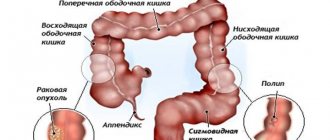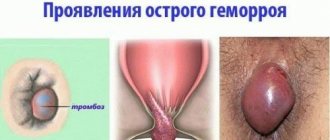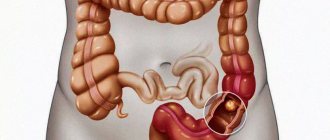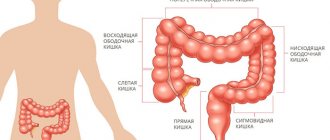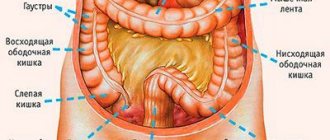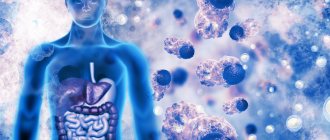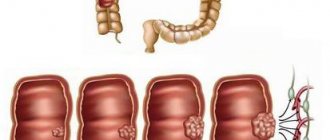Any inflammation of the mucous membrane of the colon is generally called “colitis”. Such diseases are the most common of all ailments affecting the gastrointestinal tract. Colitis is mainly caused by infections. This is usually dysentery. However, no less often the causative agents of this disease are staphylo- and streptococci, pathogenic coli-bacteria, as well as microorganisms representing the Proteus group.
In other words, the disease described can be classified as polyetiological. Doctors distinguish two main forms of colitis: acute and chronic. In the first case, the disease develops very rapidly. It is easily diagnosed, thanks to the huge number of symptoms characteristic only of it, and effective treatment is quickly prescribed to get rid of the disease once and for all.
In its chronic form, colitis is more dangerous. It proceeds sluggishly, developing over a long period of time. Due to late diagnosis, it is usually extremely difficult to completely cure such a disease.
Why can colitis develop?
Pancreatitis can cause colitis.
In addition to infections, inflammation in the colon can be caused by infection with parasites. No less common are cases where colitis developed as a result of severe intoxication.
In this case, the nature of the poisoning itself does not play a special role. With equal probability, inflammation can begin both after food toxicity and as a result of endogenous and exogenous lesions of the mucous membrane.
Also, doctors have repeatedly noted the connection between colitis and patients’ allergies to certain products.
Often, the described illness acts as a concomitant disease that develops against the background of pathologies of various gastrointestinal organs. So, the cause of colitis can be:
- appendicitis;
- pancreatitis;
- cholecystitis;
- gastritis.
All the above cases have one thing in common. Regardless of the cause of colitis, the large intestine with this disease undergoes serious morphological changes. Accordingly, the functionality of this organ is also impaired.
How to treat colitis?
A gastroenterologist can diagnose colitis.
Diagnosis and treatment of any diseases of the gastrointestinal tract should be carried out by specially trained professionals: proctologists and gastroenterologists.
And colitis in this sense is no exception. As for the specific recommendations given by doctors regarding the treatment of this disease, in any given case they will be strictly individual (as will the nature of the disease itself).
For example, in case of colitis of infectious origin, patients are required to be prescribed antibiotics. And, on the contrary, if intestinal inflammation occurs as a result of long-term medication use, all medications previously prescribed to the patient are immediately discontinued. Chronic colitis requires complex (often sanatorium) treatment. And acute ones, which arose under the influence of negative emotional factors, require regular sessions with a good psychotherapist.
Although, of course, there are some universal methods of combating colitis. So, regardless of the cause of the disease and the stage of development of the disease in a particular patient, the first thing a competent doctor will advise a visitor is to start following a certain diet.
Treatment
Diet. Patients with chronic colitis are strictly advised to follow a diet. During an exacerbation, No. 4a is prescribed, it includes steamed meat and fish dishes, steamed omelettes, stale white bread, low-fat weak fish and meat broths, water porridges, jelly, soft-boiled eggs, jelly and bird cherry decoctions, blueberries, quince, pear, rosehip, tea.
Drug treatment. If diarrhea syndrome predominates, astringent, adsorbent drugs are prescribed. In cases where chronic colitis is accompanied by dysbacteriosis, treatment is carried out using antibacterial drugs. Elimination of increased gas formation is carried out by activated carbon.
To make an appointment at the ABC-Medicine clinic for the treatment of chronic colitis, call +7 (495) 223-38-83.
Acute colitis
For an accurate diagnosis, you need to do a blood test.
With acute inflammation, severe swelling and redness forms on the intestinal mucosa. The affected tissues themselves become denser.
In severe colitis, mucus begins to secrete abundantly in the area of edema, and in especially advanced cases, pus. With a long course of the disease, traces of erosion (ulceration) and small local hemorrhages can be seen in the distal part of the intestine.
You can notice all the above-described morphological changes in the condition of the organ on x-rays. However, to clarify the diagnosis of “acute colitis,” doctors usually prescribe additional examinations to patients.
In particular, a general blood test helps confirm the physician’s suspicions: an increase in ESR levels and leukocytosis is an almost 100% guarantee that inflammation has begun somewhere in the body.
What signs of acute colitis may serve as a reason to consult a doctor? The majority of patients suffering from this disease noted the following characteristic symptoms:
- bloating;
- specific pain;
- diarrhea;
- frequent painful urge to defecate (sometimes false).
Signs of general malaise are also quite typical for acute colitis. These include, for example, severe weakness and fatigue. It is also not uncommon for patients to experience regular nausea or even suffer from bouts of vomiting. All of the above symptoms usually torment the patient for many weeks.
If they are sufficiently severe, the patient, as a rule, has no doubt that he should seek medical help. If the situation develops according to this scenario, then acute colitis can be cured quite quickly and easily.
Prevention
To avoid complications and serious health problems, timely treatment is necessary, as well as preventive measures:
- maintaining a healthy lifestyle;
- use of personal household items;
- strict compliance with prescribed nutrition, adherence to diet;
- timely consumption of food (breakfast cannot be ignored);
- compliance with basic hygiene rules (washing hands);
- avoiding the intake of raw water and thoroughly washing vegetables and fruits before consumption;
- visits to doctors, regular medical examinations by a dentist, family doctor, gastroenterologist.
It is very important to know and understand how to treat chronic colitis, but the most important thing is not to get carried away with self-medication, but still seek the help of qualified specialists. Hospitalization should not be avoided in severe stages and acute manifestations of the disease. In a hospital setting, relief and improvement in health occurs much faster than at home.
Chronic colitis
Most patients with chronic colitis experience flatulence.
In chronic colitis, inflammatory processes that were previously localized only to the mucous membrane of the colon begin to spread to the ligaments and muscle tissue.
As a result of this effect, the capillaries penetrating the organ swell and expand. This narrows the intestinal lumen. The organ itself seems to be getting shorter. With a long course of the disease, inflammatory polyps begin to develop in the intestinal tissues.
In this case, ulcers, erosions and abscesses form abundantly on the mucous membrane itself. The inflamed organ begins to produce abundant mucus, which can be easily detected by doing a routine laboratory stool test. The mentioned research method helps to identify other characteristic signs of chronic colitis. These include the presence of pathogenic microflora and increased levels of intracellular starch. If such alarming signs are detected, doctors usually refer the patient for a general blood test. If the study demonstrates elevated levels of red and white blood cells, the diagnosis of chronic colitis is confirmed.
You can suspect the described disease without special examinations. Usually, the development of this disease is quite clearly signaled by some of its typical signs. Thus, most patients with chronic colitis experience:
- various types of stool disorders;
- severe pain, the exact localization of the main focus of which
- usually impossible to determine;
- tenesmus and flatulence;
- traces of mucus or even blood in the stool;
- a specific smell emanating from feces (stench).
The difficulty in diagnosing chronic colitis lies in the fact that all of the above symptoms bother patients only periodically. Having experienced a short attack of deterioration in health, the patient may write off his symptoms as a common digestive disorder and, therefore, will not even think about seeing a doctor.
If we talk about periods of remission of the disease, during this time patients do not experience severe discomfort at all (and therefore no desire to be examined by doctors). People usually attribute the symptoms characteristic of this condition (belching and bitterness in the mouth, slight weakness, irritability, loss of appetite and periodic nausea) to overwork.
Diagnostics
In order to decide how to treat chronic colitis, it is necessary to accurately establish the diagnosis, severity and form of the disease. To do this, specialists conduct the following types of diagnostic studies:
- General and biochemical blood test.
- Scatological research.
- X-ray of the large intestine.
- Irrigography.
- Colonoscopy.
- Sigmoidoscopy.
- Anoscopy.
Only after a thorough diagnosis based on the results obtained, the collected anamnesis and the general clinical picture, a specialist will be able to prescribe the optimal treatment, which will be the most adequate and effective for the patient in a particular case.
Spastic colitis
Inflammation of the intestinal mucosa may result in stool upset.
Spastic colitis is an inflammatory bowel disease that results in intestinal dysfunction.
This disease, which occurs mainly for psychological reasons, cannot be called dangerous.
Such colitis rarely entails any complications, and its symptoms can be called, at most, uncomfortable.
However, the described disease is difficult to treat. This situation is due to the fact that spastic colitis is almost impossible to diagnose in a timely manner. The fact is that the symptoms of this disease are nonspecific and, moreover, individual for each patient. The most common reactions of the body to such inflammation of the intestinal mucosa can only be considered:
- bloating and increased gas formation;
- bowel disorders;
- abdominal pain.
Classification of the disease
In medical practice, the classification of chronic colitis helps to correctly determine treatment tactics, assess the prognosis of the disease, possible consequences and complications.
According to the etiological (causal) factor, colitis is:
- infectious – due to intestinal infection;
- nutritional – due to poor nutrition;
- allergic – due to allergization of the body;
- intoxication – as a result of poisoning;
- radiation – after exposure to ionizing radiation;
- congenital – due to congenital anomalies of the colon.
According to pathomorphological (intestinal wall structure) characteristics:
- chronic catarrhal colitis - inflammation of the intestinal mucosa;
- chronic atrophic colitis – thinning of the mucous membrane, dysfunction of the secretory glands;
- chronic erosive colitis – mucosal defects prone to bleeding;
- chronic ulcerative colitis - ulcers of the mucous membrane leading to intestinal bleeding.
Functionally:
- chronic spastic colitis – causes a tendency to diarrhea;
- chronic atonic colitis – causes a tendency to constipation.
According to statistics, when visiting a gastroenterologist, 40% of patients are diagnosed with a chronic form of the disease.
Pseudomembranous colitis
Mild pseudomembranous colitis is not dangerous.
Arising as a result of dysbacteriosis, colitis of this type is characterized by the accelerated proliferation of pathogenic microflora in the patient’s intestines.
Symptoms of the disease can vary greatly depending on its form and stage. There are three types of pseudomembranous colitis: mild, moderate and severe.
In the first form, the disease does not manifest itself as anything other than diarrhea. Stool disorders bother the patient for literally a couple of days, and then go away on their own.
Typically, a similar effect is observed in people who have taken antibiotics a little earlier. Mild pseudomembranous colitis is absolutely not dangerous and does not require any specific treatment. Moderate and severe forms of the disease are characterized by persistence of symptoms.
In other words, the patient’s diarrhea does not go away even if the medications that caused it were stopped long ago. Sometimes, against the background of diarrhea, other symptoms of intoxication may be observed, in particular, fever, nausea and weakness.
With a long course of the disease, complications are possible in the form of protein metabolism disorders and problems with the cardiovascular system.
Enterocolitis
A characteristic symptom of enterocolitis is plaque on the tongue.
In terms of its symptoms, enterocolitis is very similar to acute gastritis, but has a completely different origin.
Based on the type of pathogen, doctors distinguish two types of this disease: infectious and non-infectious.
In the latter case, the cause of the development of the disease is not harmful microorganisms, but ordinary poisoning or allergies.
In its form, enterocolitis can be acute or chronic. The disease of the first type affects exclusively the intestinal mucosa, while the second can also affect deeper tissues of the organ. As a result, it is chronic enterocolitis that especially often leads to functional digestive disorders.
As for the characteristic symptoms, abdominal pain, diarrhea, nausea and vomiting are typical for the disease described. A specific coating on the tongue also helps to diagnose enterocolitis. Most patients also complain of general signs of intoxication. Moreover, curiously, all of the listed symptoms are characteristic of both acute and chronic enterocolitis during periods of exacerbation.
Diet for intestinal colitis with constipation
Diet plays a huge role in the treatment of colitis
The importance of diet for colitis with constipation should not be underestimated. For this disease, the “Table No. 4” diet is used, developed by the Soviet therapist, one of the founders of dietetics and gastroenterology, Manuil Isaakovich Pevzner.
The work he did on compiling diets for various groups of diseases was so significant that the treatment menus he compiled are still used in modern dietetics almost unchanged.
Menu "Table No. 4" is indicated for the treatment and prevention of chronic colitis, dysentery, acute enterocolitis and gastroenterocolitis. Considering the presence of constipation due to colitis, it is recommended to combine “Table No. 4” with “Table No. 3”, the menu of which is prescribed for difficult bowel movements.
In any case, medical nutrition is prescribed by a doctor. His recommendations must be followed strictly if you want to recover faster. The therapeutic diet for colitis is aimed at accelerating the recovery processes of tissue regeneration of irritated intestinal walls, reducing and preventing further development of fermentation and putrefaction processes, restoring normal microflora in the intestine and restoring its functionality.

